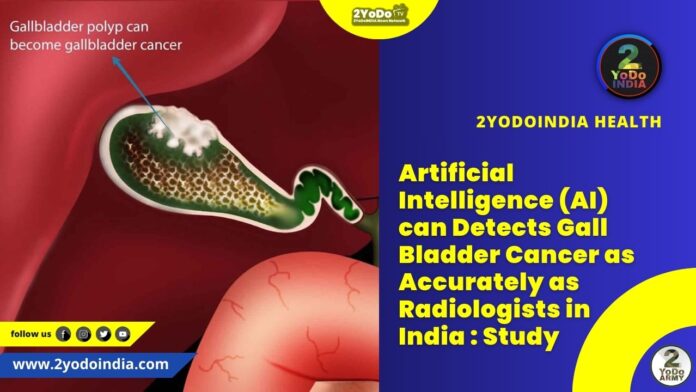Artificial Intelligence (AI) approach demonstrate diagnostic performance comparable to experience radiologists in detecting gall bladder cancer at a hospital in Chandigarh, as per a study publish in The Lancet Regional Health.
Gallbladder cancer (GBC) is a highly aggressive malignancy with a poor detection and a high mortality rate.
Early diagnosis is challenging because benign gallbladder lesions can have similar imaging features, as per researchers.
The team at Postgraduate Institute of Medical Education and Research (PGIMER) in Chandigarh and Indian Institute of Technology (IIT), New Delhi, aim to develop and validate a deep learning (DL) model for GBC detection using abdominal ultrasound and compare its performance with radiologists.
Deep learning is a method in AI that teaches computers to process data in a way that is inspire by the human brain.
This study use abdominal ultrasound data from patients with gallbladder lesions acquire between August 2019 and June 2021 at PGIMER, a tertiary care hospital.
Deep learning (DL) model was traine on a dataset of 233 patients, validate on 59 patients, and test on 273 patients.
The Deep learning model’s performance was evaluate in terms of sensitivity, specificity, and the area under the receiver operating characteristic curve (AUC), which is widely use to measure the accuracy of diagnostic tests.
Two radiologists also independently review the ultrasound images, and their diagnostic performance was compare to the Deep learning model.
Deep learning model had a sensitivity of 92.3%, specificity of 74.4%, and an AUC of 0.887 for detecting GBC, which was comparable to both radiologists, as per the study.
The Deep learning-based approach show high sensitivity and AUC for detecting GBC in the presence of stones, contract gallbladders, small lesion size (less than 10 mm), and neck lesions, which were also comparable to the radiologists, as per researchers.
Deep learning model exhibited higher sensitivity for detecting the mural thickening type of GBC compare to one of the radiologists, despite a reduce specificity, researchers said.
Authors of the study said :
“The DL-based approach demonstrated diagnostic performance comparable to experienced radiologists in detecting GBC using ultrasound,”.
“Further multicentre studies are recommended to fully explore the potential of DL-based GBC diagnosis,”.
The authors acknowledge some limitations of the study.
The findings are based on a single-centre dataset, and multicentre studies are need for broader validation.
The study has a knowledge cutoff date in 2021, and subsequent developments in DL and GBC diagnosis may not be reflect, researchers added.





